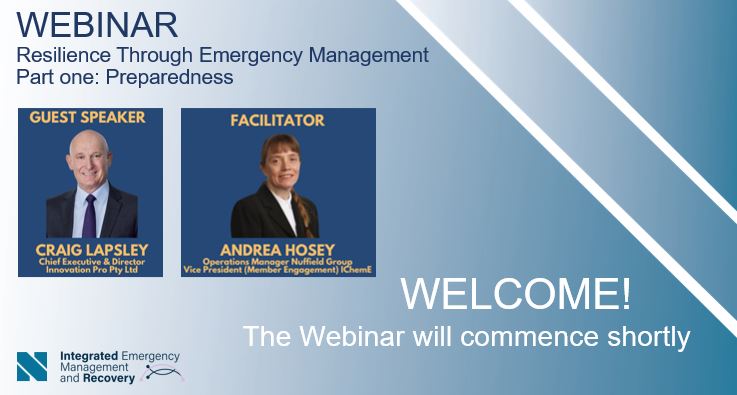Prevention is Better than Cure
This year Nuffield Group’s Health & Safety committee has been running a series on ‘Prevention is better than cure’. It’s been an informative and educational contribution to the business and it got me thinking not just about the idiom but the fact that, as we see time and time again in our business, prevention is actually also cheaper than cure.
Let’s view this in the context of the current Covid global pandemic and hopefully this is not a controversial view: Numerous outbreaks of Covid throughout the community in most every State of Australia have come from breakdowns in hotel quarantine. The consequent lockdowns have cost our economy billions of dollars. The cost of purpose-built quarantine facilities, like Howard Springs in the Northern Territory (where no outbreaks have spread into the local community to date), is in the 100s of millions. Ipso facto – it would have been cheaper to have purpose-built facilities than to have to deal with the consequences.
‘Prevention is better than cure’ is a concept dating as far back as the 13th century with the Latin saying “It is better and more useful to meet a problem in time than to seek a remedy after the damage is done’. In the 1500s Dutch philosopher Desiderius Erasmus coined the somewhat more pithy ‘Prevention is better than cure.’
In many aspects of our business we work closely with customers to do just this. Whether we’re developing a safety case or a risk assessment; providing training or support for emergency and crisis management; reviewing or updating regulatory & governance compliance; or looking at processes and providing solutions tailored to specific industries and sectors; What we do is help with prevention so the cost is cheaper than having to deal with the cure.
What’s more, we’re not just talking dollar cost here. There is a human dimension and cost to not taking the prevention route. There’s also a positive people component when prevention includes training and upskilling. That’s why we focus on building resilient businesses, helping organisations focus on preventative controls to de-risk their operations and improve health, safety and environment for their workers.
I know it’s stating the obvious but, to my point above, we still don’t have purpose-built quarantine facilities do we? It all starts by assessing your risk, identifying what preventative and mitigation controls you want, and then ensuring any training, processes or structural / framework changes are adopted and adapted to ensure you maximise your preparedness to prevent rather than cure.
Nuffield Group has invested in developing its capability in Emergency and Crisis Management to support customers and organisations build safety and resilience into their business. Nuffield Group provides consultancy and support services as part of their Integrated Emergency Management & Recovery Team. Find out more here: https://www.nuffieldgroup.com/our-products/iemr

 Photo by Mélissa Jeanty on Unsplash
Photo by Mélissa Jeanty on Unsplash
 Photo by Lubo Minar on Unsplash
Photo by Lubo Minar on Unsplash